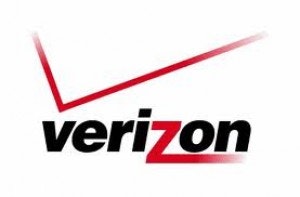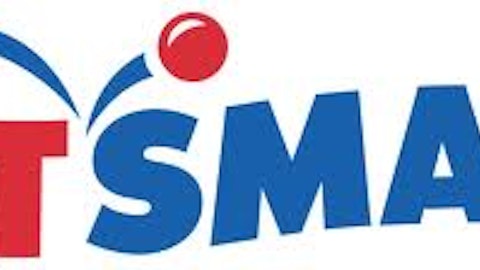I’m constantly on the lookout for companies that are undervalued or under appreciated. I’ve written in the past about the company behind Redbox. I said that investors were crazy for shorting Coinstar, Inc. (NASDAQ:CSTR). The popular argument that the DVD business was disappearing didn’t hold up in light of Coinstar’s same-store sales. I thought the company’s kiosk expertise could be leveraged to help multiple industries. Starbucks Corporation (NASDAQ:SBUX) was on board to roll out a coffee kiosk called Rubi, and Verizon Communications Inc. (NYSE:VZ) was a strong partner to get their streaming service off the ground. This was a great company that the market didn’t understand, at least until their last earnings report.

The company’s Redbox machines are a terrific value proposition. The company stocks the machines with current movies in DVD and Blu-ray formats, adds in same games, and customers rent them a night at a time. Coinstar was able to pass through a 20% price increase not long ago with no appreciable customer backlash. While the company’s Coinstar machines aren’t exactly exciting, they produce decent results.
The company’s partnership with Starbucks to roll out the Rubi coffee kiosk is a great idea. The kiosk will sell Starbuck’s Seattle’s Best coffee at very competitive prices. Coinstar says they expect “a few thousand” of these to be installed. Investors have been anxiously waiting for Redbox Instant, the company’s streaming service in partnership with Verizon. The service is competitively priced at $8 a month for unlimited streaming with 4 Redbox rentals included. Since those rentals alone would normally cost $1.20 each, this makes the streaming option a very cheap add-on. If customers just want the streaming option alone, the cost is just $6, which is even cheaper than Amazon.com, Inc. (NASDAQ:AMZN)’s Prime service.
The Bad
Here is the problem, Coinstar is trying to make this streaming offering work in an increasingly crowded field. The bigger issue is, the company’s competition is already beginning to lock up certain content. It’s one thing to have an even playing field where Redbox Instant can carry the same titles as Amazon Instant or Netflix, Inc. (NASDAQ:NFLX). Some movies are carried by multiple services, like the Thor and Captain America movies. However, Netflix and Amazon are getting smarter at playing this game.
Netflix is getting into original content in a big way with shows like Lilyhammer, House of Cards, and others. Both Amazon and Netflix also understand that exclusive content is important. We already know that Amazon will have the exclusive rights to the popular show Downton Abbey, as well as CBS’s new show Under the Dome. Netflix has deals with Warner Bros. for multiple current television shows that will be exclusive to the service. In addition, while this agreement is still a few years away, The Walt Disney Company (NYSE:DIS) agreed to give exclusive distribution rights to Netflix for its movies beginning in 2016.
With all of this content being locked away to different services, and Hulu holding exclusivity on many current television shows, the streaming market is becoming more difficult to crack into. The challenge for Redbox Instant will be to woo users away from other services. If the company can’t offer similar exclusive deals, the value proposition falls apart pretty quickly.
The Ugly
Most customers have a Redbox kiosk within easy driving distance from their home. If they signed up for Redbox Instant, they would get streaming, current DVDs and Blu-rays, and video games all from one service. This is something that neither Netflix nor Amazon can match.
While Redbox was expanding, the convenience of these locations got better and better. The problem is, Coinstar said that, “new (Redbox) kiosk installs (would be) reduced substantially in 2013 and beyond.” I’ve researched Redbox’s addressable market in the past, and found that in the U.S. alone there are about 36,000 grocery stores and over 146,000 convenience stores. With under 44,000 Redbox kiosks, it seems the company could expand for a while. However, with the company only expecting to add 500 to 1,000 kiosks in 2013 and then a reduced number beyond that, the company just told investors they have reached saturation in the U.S.
Where Do We Go From Here?
If you want a play on the Redbox Instant service, Verizon is the way to go. Verizon owns the majority of the service, and can offer it as an add-on to its huge wireless customer base. With Verizon stock paying a 4.6% yield, and the company generating billions of free cash flow each quarter, this is a much safer bet. If investors want a high-risk, high-reward option, either Netflix or Amazon could be a good option. Both stocks sell for forward P/E ratios of over 100, but it seems likely that these two will rule the streaming video business. Of the two, I prefer Amazon because the company’s business isn’t solely reliant on the streaming business. Amazon’s huge retail operations and growing hosting business give diversification to the revenue stream that Netflix lacks.
In the past, Coinstar looked like a good value, and on the surface not much has changed. Shares trade for about 10 times earnings, and analysts expect over 17.5% EPS growth. The problem is, this growth story gets much more difficult to believe with the Redbox concept reaching saturation. With new installs slowing down dramatically, same-store sales will have to carry the brand. Same-store sales were down 4% in the last quarter, and I’m worried this is the beginning of a slow decline. It’s going to be a few years before investors know if Redbox Instant will be a hit, but I wouldn’t suggest waiting around to find out.
The article The Statement Investors Didn’t Want To Hear originally appeared on Fool.com and is written by Chad Henage.
Copyright © 1995 – 2013 The Motley Fool, LLC. All rights reserved. The Motley Fool has a disclosure policy.




